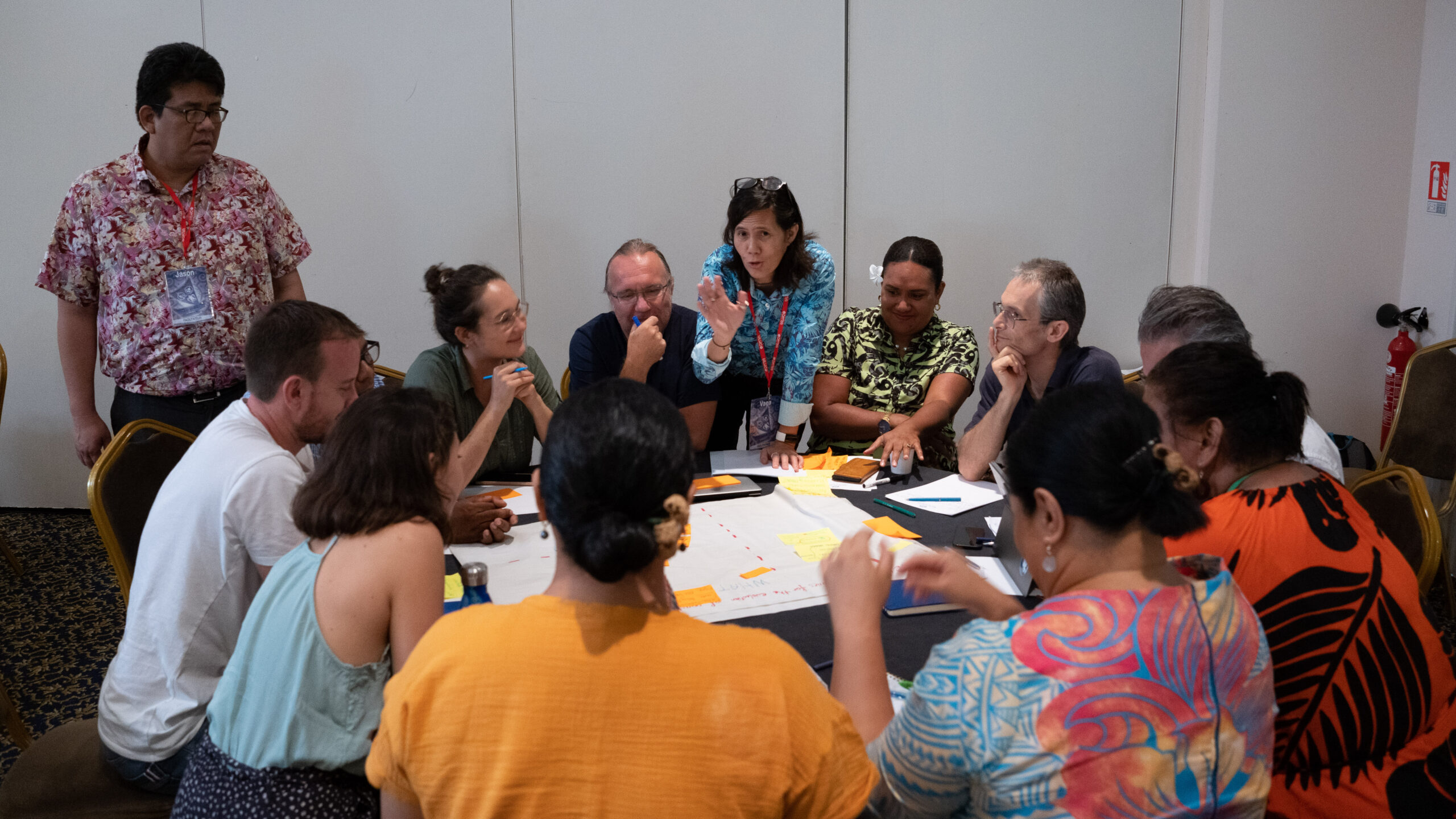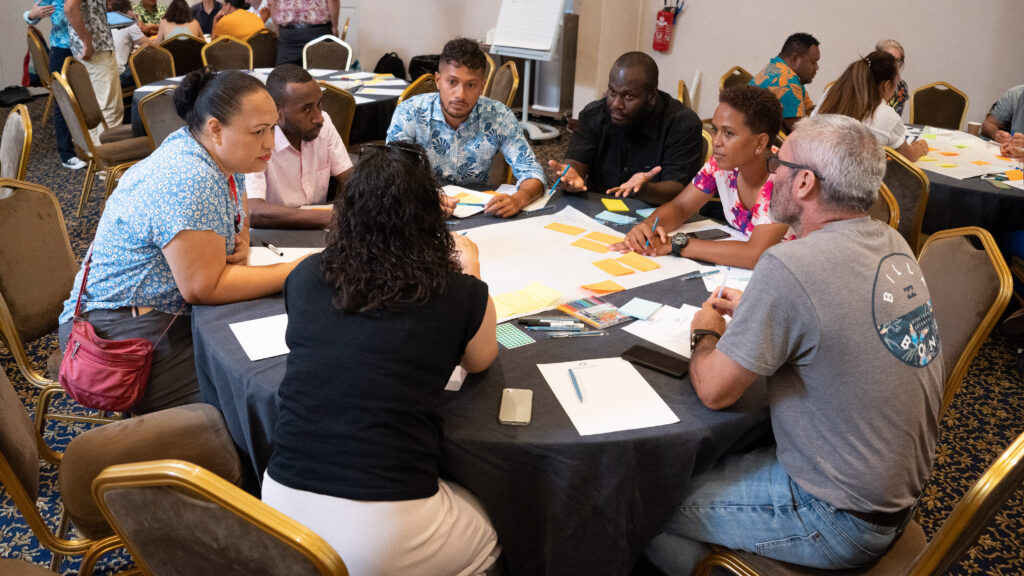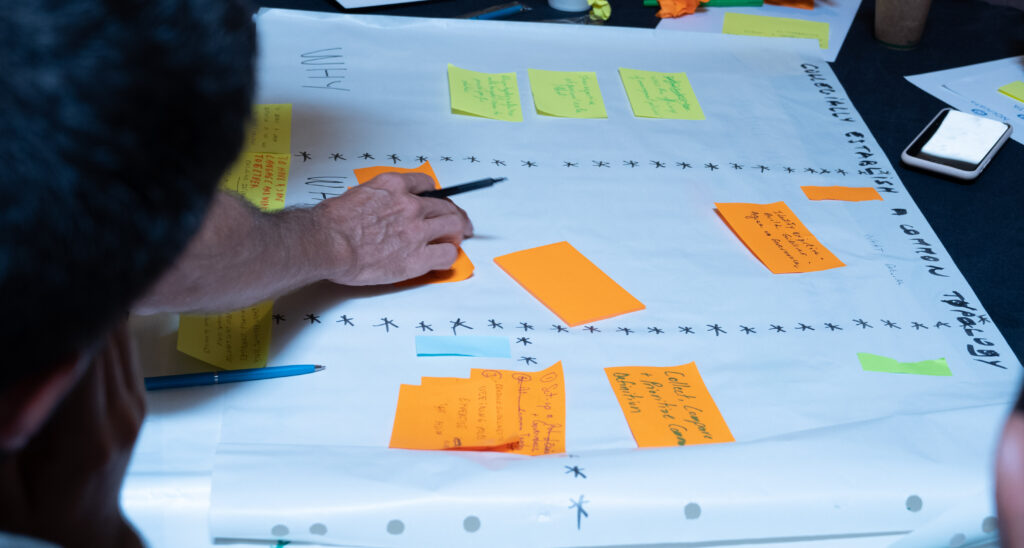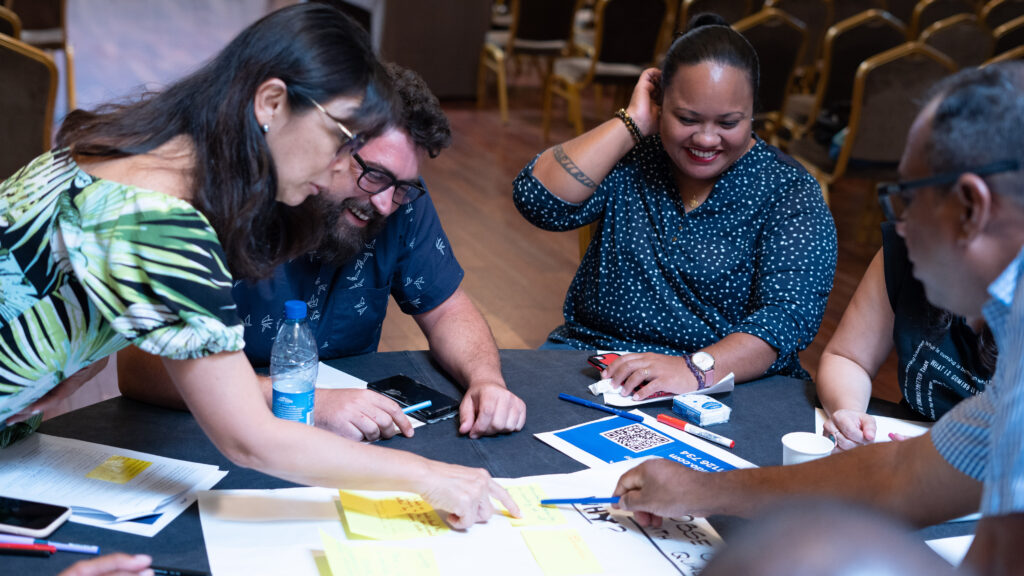
After a launch day during which the OGS welcomed its participants with the traditional welcome “coutume” at the Tjibaou Cultural Centre – followed by a very nice opening ceremony with speeches from officials coming from all over the region -, Tuesday, November 29th marked the beginning of collective workshops for the event’s participants. The objective? To identify the needs and resources required to design collegially possible regional projects for the Pacific region and to address common issues and pool resources.
Collective intelligence and #RegionalNeeds
The participating delegations were invited to meet in the Venezia Room of the Nouvata Hotel in Noumea, starting 8am and for the whole day. Tuesday’s programme consisted of a series of three workshops based on collective intelligence and gathering decision-makers, services providers, funders and scientists and aiming to identify needs and resources in order to size up possible projects for the Pacific region to be led collectively. The themes of these workshops were “territory knowledge”, “water resources” management and finally the “wetlands” and the conservation of their ecosystems. These three themes were selected from the 17 Sustainable Development Goals (SDGs) set by the United Nations.
For each workshop session and each theme, the participants were contacted before the event to express themselves, via a questionnaire, on the four areas of reflection that they felt were the most important to address during the week. The results of these questionnaires were presented this morning, and the participants were invited to vote again on the two topics they wished to prioritise, before each of the day’s three workshops.
Thus, concerning “territory knowledge” – the theme that occupied the participants’ brains on Tuesday morning – the two points retained consisted in:
- Collegially establishing a common typology (including classes definitions) adapted to Pacific territories and their different types of landscapes
- Predicting trajectories for the evolution of coastal environments by using datasets.
After a well-deserved lunch break, our participants were back in business to tackle the issue of water resources management. The issues they voted on were:
- Organise a benchmarking of the best practices for water resources management using EO/GIS tools
- Getting adapted water resources management tools shared with PICTS
Finally, the last workshop was dedicated to wetlands monitoring and it allowed to discuss the following two topics:
- Building a regional initiative dedicated to wetlands monitoring, in order to share resources and results
- Earth observation capacity-building to assist environment analysis with qualified and sharable data.

Some very productive round tables
Once these different issues had been voted on, the participants were organised in round tables and in groups of ten, in order to start thinking concretely about the needs and resources available to implement useful actions. For each voted issue, the organiser asked them to answer a series of questions prior to taking any action:
- Why is this issue important and why set up such a project?
- What will be done concretely and what deliverables will be produced?
- What resources will be needed to implement each action and what will be the main indicators of success?
The different groups were then given time to provide answers to these questions before appointing a spokesperson to share their ideas with the rest of the participants. Each group was finally invited to change tables and move on to the next issue. These times of reflection based on collective intelligence clearly delighted the participants: they worked with good humour and enthusiasm throughout the day! They all praised the very good work of the facilitators who accompanied them on each workshop. There was even a birthday party in the middle of the afternoon!
Tuesday was therefore a crucial first step in providing an overview of the technical capacities and resources available to implement sustainable regional projects using geospatial data. The participants will meet again at the end of the week to brainstorm on the concrete implementation of these resources, the temporal and spatial planning of the selected actions and their sources of funding. Clément Flavigny, consultant at Atlas Management in New-Caledonia and supervisor of Tuesday’s workshops, explained to us that “The objective of this symposium is to make these projects operational. All the elements worked on collegially today will be the subject of a progress report in a few days, and will then be adopted at the end of the week”. “Rendez-vous” this Sunday to see these workshops through! (#Solutions)


The OGS, now heading to the University of New Caledonia
The OGS continues on Wednesday, November 30th and will be held at the University of New Caledonia, in Nouville. This third day will be dedicated to technical presentations by institutions, researchers, suppliers and students. Different themes will be addressed, such as adaptation to climate change, Oceanian women in geospatial, biodiversity and natural resource management and ecosystem services. Networking workshops in the form of speed meetings will also be organised throughout the day. We’ll see you at the University!